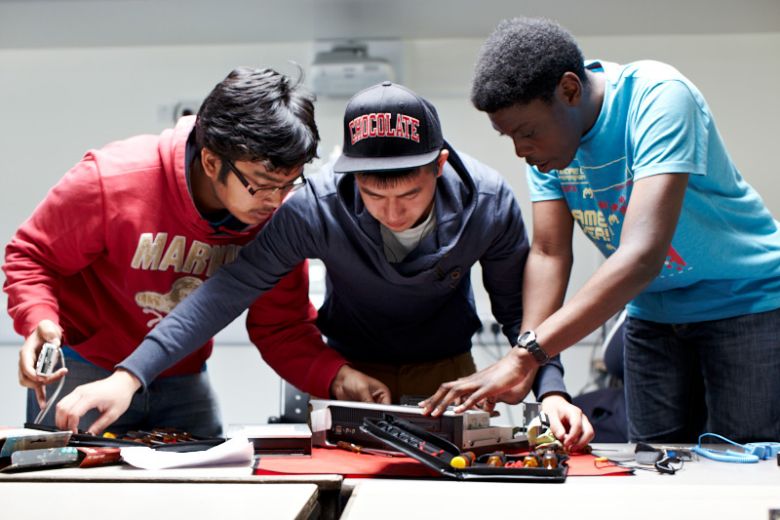
Overview
A-Level Computer Science
The Computer Science specification will above all else be relevant to the modern and changing world of computing. The new specification will:
- Focus on programming, building on our GCSE Computing and emphasise the importance of computational thinking as a discipline.
- Have an expanded maths focus, much of which will be embedded within the course.
- Put computational thinking at its core, helping students to develop the skills to solve problems, design systems and understand human and machine intelligence.
- Allow student to apply the academic principles learned in the classroom to real world systems in an exciting and engaging manner.
The aims of the qualification are:
- An understanding and ability to apply the fundamental principles and concepts of computer science, including: abstract on, decomposition, logic, algorithms and data representation
- The ability to analyse problems in computational terms through practical experience of solving such problems, including writing programs to do so
- The capacity to think creatively, innovatively, analytically, logically and critically
- The capacity to see relationships between different aspects of computer science
- Mathematical skills
Course Content
Topics Covered
- The characteristics of contemporary processors, input, output and storage devices
- Software and software development
- Exchanging data
- Data types, data structures and algorithms
- Legal, moral, cultural and ethical issues
- Elements of computational thinking
- Problem solving and programming
- Algorithms to solve problems and standard algorithms
- Learners will choose a computing problem to work through according to the guidance in the specification.
- Analysis of the problem
- Design of the solution
- Developing the solution
- Evaluation
The course is a 2 year course, involving a reasonable amount of self-directed study and students are expected to work both independently and as part of a team. A variety of teaching and learning methods will be used, including activity based exercises, lectures, demos and case studies. A range of assessment methods will be used. External exams are set by OCR with coursework based portfolios will also be produced.
Careers
At the end of the course you will be in a position to go on to a higher qualification or into work at a junior level in the IT industry. A range of higher qualifications will be open to you. The natural progression would be a Degree in Computing. Many students study degrees in Business and IT or computer science.
For those students not wishing to progress to university, comprehensive support is provided to help them find alternatives such
as employment or apprenticeships. In the past, students have progressed onto employment as systems analysts, network
engineers and IT technicians.
